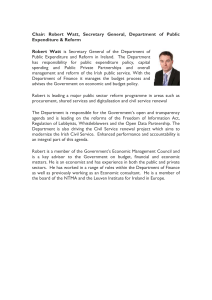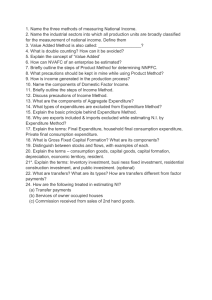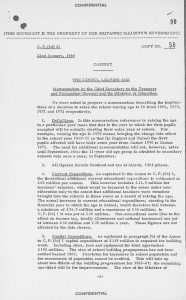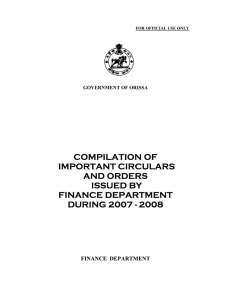Document 11237273
advertisement
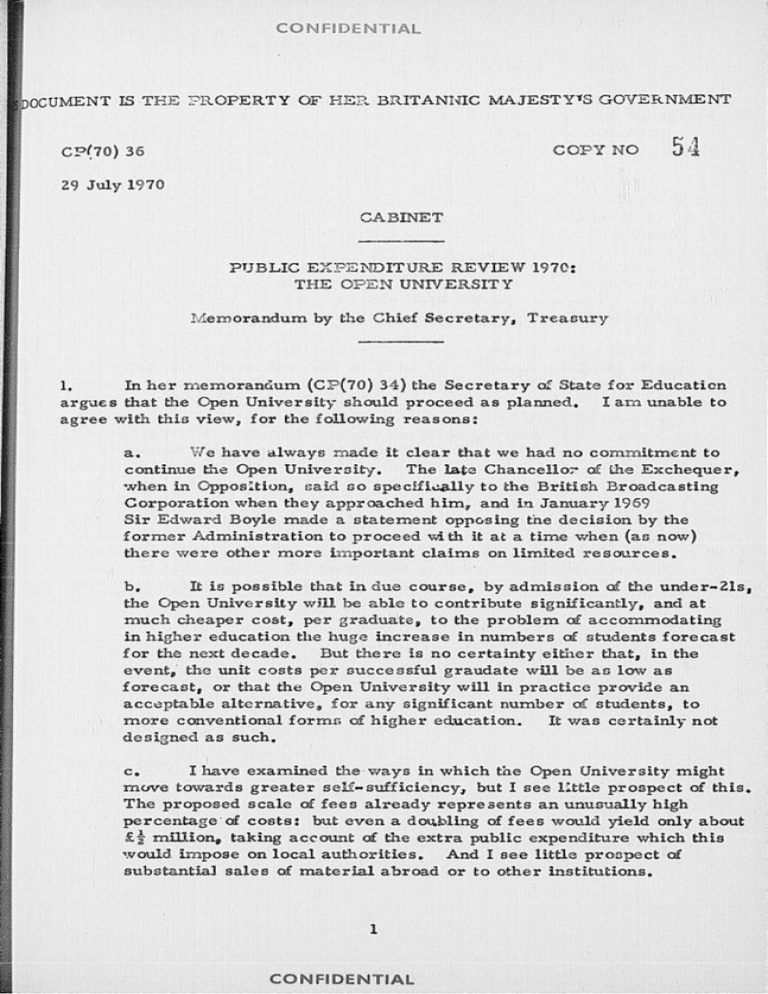
OCUMENT IS THE PROPERTY OF HER BRITANNIC MAJESTY S GOVERNMENT T CP(70) 36 COPY NO 54 29 July 1970 CABINET PUBLIC EXPENDITURE REVIEW 1970: THE OPEN UNIVERSITY Memorandum by the Chief Secretary, Treasury 1. In her memorandum (CP(70) 34) the Secretary of State for Education argues that the Open University should proceed as planned. I am unable to agree with this view, for the following reasons: . . . . . i ,. - : a. We have always made it clear that we had no commitment to continue the Open University. The late Chancellor of the Exchequer, when In Opposition, said so specifically to the British Broadcasting Corporation when they approached him, and In January 1969 Sir Edward Boyle made a statement opposing the decision by the former Administration to proceed with it at a time when (as now) there were other more Important claims on limited resources. b. It is possible that Indue course, by admission of the under-21s the Open University will be able to contribute significantly, and at much cheaper cost, per graduate, to the problem of accommodating in higher education the huge increase in numbers of students forecast for the next decade. But there is no certainty either that, in the event, the unit costs per successful graudate will be as low as forecast, or that the Open University will in practice provide an acceptable alternative for any significant number of students, to more conventional forms of higher education. It was certainly not designed as such. 9 i c. I have examined the ways in which the Open University might move towards greater self-sufficiency, but I see little prospect of this The proposed scale of fees already represents an unusually high percentage of costs: but even a doubling of fees would yield only about ££ million, taking account of the extra public expenditure which this would Impose on local authorities. And I see little prospect of substantial sales of material abroad or to other institutions. 1 d. I have also considered what would be the effect of a sharply­ reduced level of student intake. A s will be seen from the agreed figures in the annex to the Secretary of State s memorandum, a reduction from 25,000 to 15, 000 would yield savings rising to only about £ i f million by 1973-74. , 2. As my colleagues know, our goal of drastic reduction In public expenditure and of alleviation of taxation can only be achieved If we rigorously pursue every significant saving available to us. In these circumstances I cannot agree that we should Ignoro a project which we did not initiate, have never commended, and have never accepted as a commitment? which is completely experimental and uncertain in its effects; and which, at best, can only be of marginal use in the solution of the urgent resource problems which face us in conventional education. 3. I recognise the difficulties, and I agree that it is not worth encountering them for the sake of £1 or £2 million of marginal savings through reduced intake. I do consider, however, that it Is worth facing them, despite some nugatory expenditure of about £8 million^ for the sake of direct continuing savings which will rise to over £10 million a year in five y e a r s ' time. I also recognise the difficulty that closure would have to be announced very soon, and in Isolation from the general pattern of the other measures which we are examining. But this, in my view, only makes it the more important that the action we announce should be bold enough to show that we mean business. A forthright statement now cancelling the project will no doubt provoke protest and opposition. But It will be taken as a real earnest of our intention to cut and re-fashion public expenditure in accordance with the social, and wider educational, priorities set out in our Manifesto and to secure the reductions in taxation on which our whole economic programme rests. M V M Treasury Chambers SW1 29 July 1970

